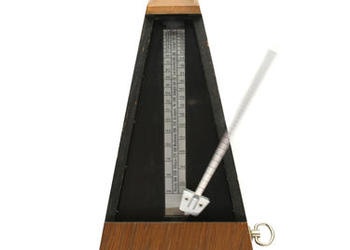Vertical News
Got Rhythm? Study On 'Beat Deafness'

Experts have begun to pinpoint why some individuals can’t match the beat of a song or other rhythmic patterns they hear. A study conducted by McGill University and the University of Montreal in Canada had participants (a control group of those with normal rhythm-matching ability, and a smaller group of rhythmically challenged individuals) match the beat of a metronome, which changed beat patterns without warning.
The rhythmically challenged individuals had trouble adjusting to the new beat pattern, taking far longer than the control group to adjust. Researchers found that rhythm is a biological response, like circadian patterns and heart beats, and is an innate part of the brain and body function. However, for those who had trouble matching the beat, there is clearly a deficiency in this ability to match rhythmic behavior (like walking at the same pace or dancing) with other individuals.
Scientists hope to use the information gathered to improve models of rhythm matching and understand more about this phenomenon (Mark Prigg, “Does This Explain Dad Dancing? Researchers Find Some People Are ‘Beat Deaf’ and Really Can’t Keep Time to Music,” The Daily Mail at DailyMail.co.uk, November 10, 2014).
King David said that the human body is “fearfully and wonderfully made” (Psalm 139:14). Though each new nuance of discovery about how the body systems work together is fascinating, it is important to realize that as much as science knows and is learning about the body, that much more remains as yet undiscovered or incomprehensible. God is infinite and the depth of design He created into human beings truly reflects His endless, divine mind.
